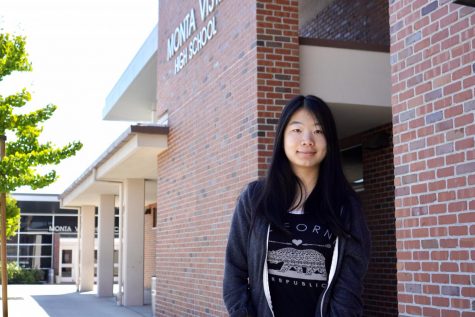Tiger parents in quarantine
Examining how the shelter-in-place order has impacted parent-child relationships
April 10, 2020
The term tiger parenting, defined as a strict and demanding form of parenting, originated from Amy Chua’s book “Battle Hymn of the Tiger Mother.” As a Yale law professor, she details how she raised her two daughters, restricting their recreational time and demanding high grades. She claims that the parenting style is common in Asian families and is justified by the success her daughters achieved in academics and music.
According to Student Advocate Richard Prinz, tiger parenting stems from a parent’s own beliefs and upbringing, and they probably think it’s the best way to raise their children.
“They might think it’s the most effective, that it brings results,” Prinz said. “[But] sometimes adults, just like everyone else, have habits and attitudes and ways of doing things that become kind of ingrained … Sometimes it’s learned behavior from our own parents, our reaction to how our parents raised us.”
Junior Aditi Singh believes that her parents could be considered tiger parents, as they are strict about her schoolwork, but they don’t entirely restrict her from going out and enjoying herself. However, she was not able to participate in all the clubs that she wanted to join this year.
“There were a lot of clubs I wanted to do and I wanted to put my full commitment into them,” Singh said. “But because of my schedule and school and because of my course rigor, they often didn’t allow me to so there were a lot of things which I could have done but [wasn’t allowed to do].”
Junior Bandhavya Parvathaneni doesn’t view her parents as tiger parents, but does think that they can be strict, especially when it comes to her studies. She finds that the shelter-in-place has made them more involved in her school work.
“My mom focuses on what I exactly have been doing in class a lot more now just because she doesn’t get to experience it firsthand, and definitely has more questions about how school is going as a result,” Parvathaneni said. “I think both of my parents have a lot more questions in general about school as a result of distance learning because this is new territory for all of us.”
On the other hand, Singh has not seen much change in her parents’ involvement in her studies, as both of them work from home during the weekdays. However, she believes that the shelter-in-place has positively impacted their relationship.
“The fact that I’m home with them allows me to communicate with them a lot more,” Singh said. “So, while the physical conditions aren’t desirable, it’s definitely better in terms of communication between us.”
Singh believes that a lot of their previous miscommunications came from not knowing what was going on in each other’s lives. She explains that now her parents ask about how she and her friends are doing, she asks how work was for them and they can discuss what they find stressful. She believes that their overall understanding of each other has improved.
Prinz can see how a student’s relationship with their parents could change for the worse or for the better by spending more time at home. Some families may be as busy as before with work, while others, like Singh’s, may have more time to talk to each other.
“There’s a real opportunity for families to come closer together and be kinder and nicer to each other, because this is such an unusual situation where we just can’t be so busy running around,” Prinz said. “I hope it can lead to that, that teens will reach out and parents will reach out and there’ll be more of a willingness to learn about each other and get closer.”




























